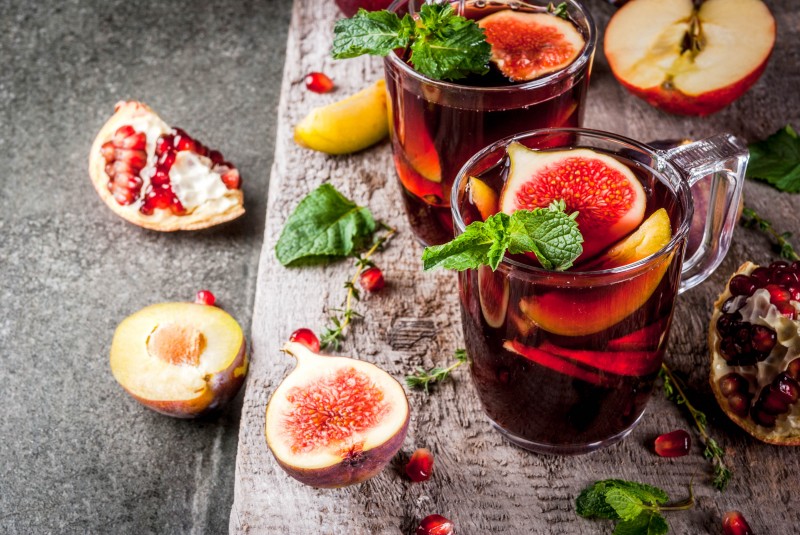
‘Tis the season for holiday fun and good old-fashioned binge drinking. But wait! You started a fat loss program last month, and you don’t want all your hard-earned progress going to waste! Should you just stay home and not socialize with friends? Should you just say f*ck it and save your goals for another day? Lucky for you, there is a solution where you do not have to be a hermit—you can enjoy a drink and not completely backtrack. In this article, I am going to discuss the effects and limitations of alcohol, describe how alcohol affects our body composition, and explain some strategies for how to include it (in moderation.) Sorry, no matter how you slice it, binge drinking ain’t gonna fly for most of you.
How does alcohol consumption impede fat loss?
We always have to keep in mind that regardless of calorie content, which is an obvious downfall of alcohol, alcohol first and foremost is a poison. Whenever we consume something that is toxic or poisonous in nature, it is our body’s job to rid us of it as quickly as possible, even at the sacrifice of other metabolic functions taking place at that time. What does this mean? This means that as you consume alcohol, the metabolism of the other macronutrients (carbs/fats/protein) slows down drastically so that your body can take care of metabolizing the alcohol first. This includes the food you ate earlier that day, the food you may be eating currently with your beer, and the food you will eat later in the night. Our bodies cannot store alcohol! Our bodies must metabolize it immediately. Therefore, your body will preferably store those macronutrients (what you’ve been eating all day) as adipose tissue in the meantime. So, not only are you consuming more calories in general from the alcohol (alcohol contains seven calories per gram) but also you are literally getting fatter simultaneously. Now that I have made this really dramatic, that doesn’t even include the additional carbs found in beer, and sugar in cocktails. So, now you see the pickle you could be in here. Alcohol has an immediate impact on adipose tissue gain. There’s really no way around that physiology.
RECENT: 8-Week Upper Body Powerbuilding Program
Another related factor is the impact that alcohol has on your appetite. There is a reason you only crave dog-food-grade Taco Bell when you are wasted. You literally are craving anything and everything. So, not only have we turned our bodies into fat-gaining machines but also we then decide to eat Taco Bell. As our doses of alcohol increase, our judgement inversely decreases.

bondd © 123rf.com
The last factor to consider is that unlike the other macronutrients, you cannot speed up the metabolism of alcohol. Alcohol burns at an average rate of one ounce per hour, which is slow as shit, by the way. So, the “drink coffee to sober up” advice is a myth. Now you’re just drunk and awake. You have to just let it run its course and watch your waistline expand. Now that you all hate me, let’s actually find a solution to this!
How can you consume alcohol without it making you fat?
The first piece of advice is to not binge drink! The fallacy around binge drinking is that the morning after, you will wake up looking super lean; therefore, you don’t think you did any damage. What you don’t realize is that you are just super dehydrated and lost a good amount of subcutaneous water, and you also puked all night, which you don’t remember, either. So, although you may not “see it” immediately, binge drinking does lead to fat storage almost immediately. Now, you may be one of those people who are blessed with a higher-than-normal metabolism, and weekend benders don’t phase your body composition at all. If that is you, stop reading. No one likes you. Even your dog resents you.
Now if you are like most people and alcohol is doing you no fat-loss favors, I do have a solution for you. Albeit, there are limitations, but it is a solution!
When it comes to fat gain and fat loss, calories are king. So, even if we can’t necessarily control how our bodies metabolize alcohol, we can control how many calories we consume. This at least takes care of part of the problem! I am assuming that because you are on a fat-loss journey that you are tracking your macros/calories or at least have some ball park as to what you are consuming. If not, read my article on the basics of macro tracking and macro tracking for fat loss. Those will help.
In moderation—I repeat, moderation—you can track alcohol as part of your macros/calories, and that may be the best way to at least keep calories in check! So, let’s dive into how to do that. First, let’s keep it simple and just do calories. Say you are consuming 2,000 calories per day and that has been a deficit for you (slowly losing body fat over time.) You are invited to a New Year’s Party, so of course you are going to drink! Let’s plan ahead and “add in” alcohol for that night. Say you know for sure that you plan on having four Bud Lights and one glass of champagne.
1 Bud Light = 110 calories x 4 = 440 calories
1 Glass of Champagne = 95 calories
Okay, let’s be real—you are having a shot, too. 1 whiskey shot = 105 calories

Mirko Vitali © 123rf.com
So, for the night, you plan on drinking 640 calories worth of alcohol. Therefore, take a look at your day, and plan out the remaining 1,360 calories of food. The food and alcohol combined will at least allow you to hit your calorie target of 2,000. So, at least you won’t be in a calorie surplus even if alcohol metabolism is slow as shit. You can also just choose lighter forms of alcohol, such as White Claws or clear liquors. That will give you a few extra calories to work with. And don’t mix your liquor with shit. Use Diet Coke, soda water, etc. The above calories do not equate for adding in extras.
Now, let’s take that to the next level of measurement. Again, let’s use the 2,000-calorie example just because it is easy math. Say out of that 2,000-calorie goal, your daily macros are 170g protein, 200g, and 65g fat. Ideally, you would want to still hit your protein goals, and only pull calories from carbs and fats. However, know that if you do that, with the amount of alcohol you plan on drinking above, you will essentially have to eat protein and veggies all day to make room for the alcohol. So, if you are cool with that, then have at it.
However, I am sure that what is laid out above is definitely eye opening as to how many calories are in alcohol and how it can really add up and f*ck up your progress. This is a great quantitative example of why drinking weekly or in large quantities will make it extremely hard to lose weight over time.
But it also does prove that having one or two drinks here and there can easily be added into your macros/calories and not affect fat loss at all. The moral of the story is, if you have a fat-loss goal, you may have to sacrifice alcohol more than you think. But that doesn’t mean you have to be a stick in the mud. Simply adjust your daily macros/calories as you need to, and plan ahead! Don’t shoot for cocktails and margs, but keep it simple and trackable. If you can’t measure it, you can’t manage it. So, go have fun, but keep it reasonable, and you will stay right on track!
Header image credit: Dmitrii Shironosov © 123rf.com










